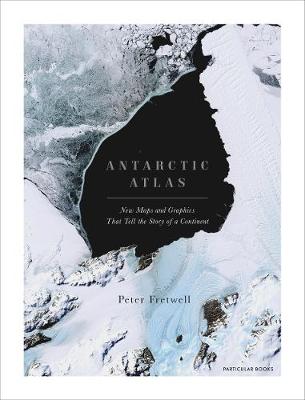
Antarctic Atlas
Peter Fretwell
£35.00
Description
A FINANCIAL TIMES BOOK OF THE YEAR 2020
SHORTLISTED FOR THE ESTWA AWARD FOR ILLUSTRATED TRAVEL BOOK OF THE YEAR 2022
One of the least-known places on the planet, the only continent on earth with no indigenous population, Antarctica is a world apart. From a leading cartographer with the British Antarctic Survey, this new collection of maps and data reveals Antarctica as we have never seen it before.
This is not just a book of traditional maps. It measures everything from the thickness of ice beneath our feet to the direction of ice flows. It maps volcanic lakes, mountain ranges the size of the Alps and gorges longer than the Grand Canyon, all hidden beneath the ice. It shows us how air bubbles trapped in ice tell us what the earth’s atmosphere was like 750,000 years ago, proving the effects of greenhouse gases. Colonies of emperor penguins abound around the coastline, and the journeys of individual seals around the continent and down to the sea bed in search of food have been intricately tracked and mapped. Twenty-nine nations have research stations in Antarctica and their unique architecture is laid out here, along with the challenges of surviving in Antarctica’sunforgiving environment.
Antarctica is also the frontier of our fight against climate change. If its ice melts, it will swamp almost every coastal city in the world. Antarctic Atlas illustrates the harsh beauty and magic of this mysterious continent, and shows how, far from being abstract, it has direct relevance to us all.
Publisher Review
These mesmerising maps offer sparklingly clear prospects of an otherwise almost incomprehensible terrain * The Spectator * Tells the story of Antarctica in maps and shows the continent in ways never seen before * Cambridge Independent * A cartographer and scientist with the British Antarctic Survey, Fretwell has created 70 new maps each revealing different aspects of the icy continent. We learn the locations of the "pole of ignorance", the world's driest place, and the largest penguin colonies, but also about the human history and politics of the region and - alarmingly - what Antarctica might look like once all the ice is gone. * Financial Times *
Book experts at your service
What are you looking for?